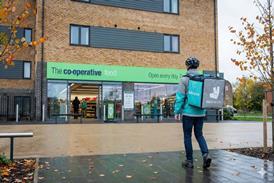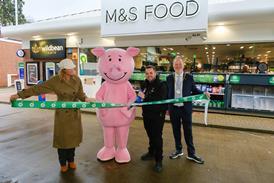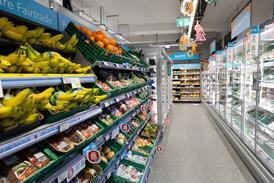Retailers are being warned to stick to their trusted sources of supply, after a Food Standards Agency (FSA) investigation into UK food crime uncovered “a wide range of vulnerabilities and risks across the food industry”.
With the UK food and drink sector representing 11% of the UK economy, and chances of detection “relatively low,” there remains a “significant risk” to consumers and legitimate businesses from serious fraud, the FSA said.
The lucrative alcohol category, and particularly spirits, was identified as highly open to the risk of fraud and counterfeiting. However, the report also revealed an array of other surprisingly vulnerable categories, including olive oil, eggs and herbs.
Olive oil was judged to be a “moderate area of concern” due to its high value.
Criminals make false claims about product quality, such as being extra virgin and substituting olive oil for cheaper oil, the FSA said.
Herbs, spices and nut powders also “represent an attractive area for those wishing to make criminal profits,” it added.
An oregano sampling exercise earlier this year revealed that 15% of samples bought in UK shops were also found to contain olive or myrtle leaves. Levels ranged between 21% and 69%.
Eggs were also vulnerable to mislabelling issues, with boxes being falsely labelled as free range or organic, while honey, and in particular Manuka honey, was also open to labelling fraud. Around a third of Manuka honey tested by the FSA was found to be non compliant in terms of quality, declared activity or botanical origin, compared to the declarations on the label, the FSA said.
The report follows in the wake of an earlier FSA survey which revealed that 42% of shoppers were concerned about the safety of food sold in shops and supermarkets while 43% lacked confidence in chilled or frozen meat products.
Andy Morling, head of the FSA’s National Food Crime Unit (NFCU) which was set up in the wake of the horsemeat scandal, said: “Food and drink is a £200bn industry in the UK and like any major industry, it’s vulnerable to a wide range of criminal activity.
“Unlike many industries, the crimes are often undetected or unreported. Consumers may not be aware they are victims of food crime, while businesses can worry that reporting a crime will damage their reputation or profits. Nonetheless, reported or otherwise, the impact of food crime can be extremely harmful to individuals, the economy and the UK’s reputation.”
The FSA is advising retailers to stick to trusted sources of supply and report any suspicions they have about fraudulent food sales to the NFCU.




















No comments yet